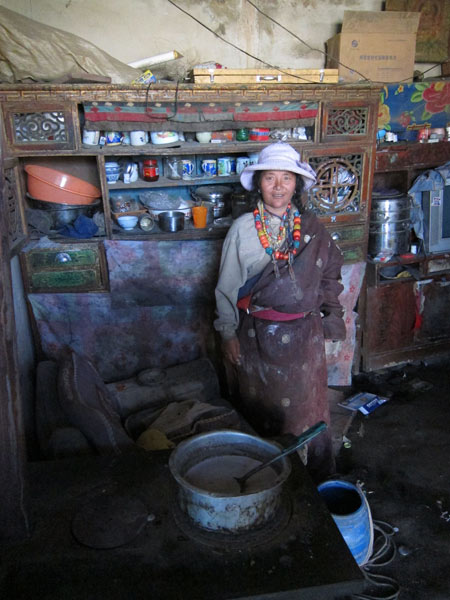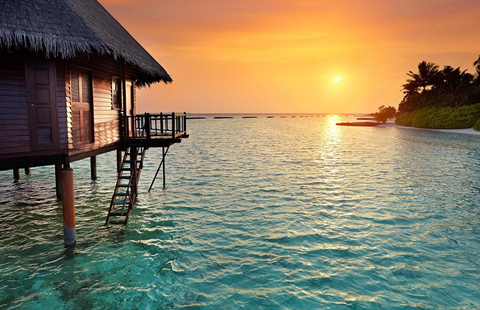No-man's land is nomads' land
Updated: 2015-07-18 08:11
By Erik Nilsson in Qumalai, Qinghai(China Daily)
|
||||||||
 |
|
The droppings are used for heating and cooking on the frigid QinghaiTibet Plateau; Ahzhub's family lives in amountainside tent beneath a snowcap outside Yege in 2013. |
Qumalai and its hinterlands very rarely see outsiders, let alone Americans. The same holds true in inverse. I was hosted not only with the best the nomads could scrape up but also to such questions as: "Is Washington DC in Latin America?"
I'd immersed myself in Tibetan herding life for weeks, learning about an existence few outsiders penetrate, set in otherworldly terrains. (Locals joke Yege's altitude and temperatures keep outsiders away.) And I'd enjoyed the excessive hospitality of those with little to offer materially.
The nearest hotel was over a hundred kilometers away.
Places like Yege township's grasslands offer glimpses into lives rarely seen by non-locals, a way of being that's as equidistant from that of a rural dweller in the United States and an urbanite in a Chinese megalopolis. (I've lived as both.)
Azhub's family didn't have meat but prepared a special meal with vegetables, having heard foreigners like them. Nomads prefer yak dairy - yogurt, butter and cheese - and meat. Attempts to get children to enjoy fruits and veggies to enhance nutrition have met with mixed results.
Crumbles of yak cheese swelled from on tarps outside the tent. I was surprised to discover the lumps are tooth-crackingly hard.
Also tough are yak ribs, which many splurge on to treat an outside guest.
But I can't chew the meat - no matter how hard I try.
Ribs are eaten with a double-edged knife.
Diners carve the flesh from the bone by slicing toward themselves to avoid puncturing dinner mates.
I committed a faux pas my first year by chopping away from myself, as American children are taught to do to avoid injury.
I was informed that ran against etiquette. For safety reasons.
- Gala promotes gender equality
- Trafficked woman appeals to be left alone, continue her life
- Wreckage discovery shouldn't disrupt search: MH370 families
- 3,000 students attend pre-exam session in huge hall
- 38.7b yuan in State assets recovered in campaign
- China closely watches recovery of Boeing debris: spokesman

 Top 10 international destinations for Chinese millionaires
Top 10 international destinations for Chinese millionaires
 Rainstorm affects 940,000 in South China
Rainstorm affects 940,000 in South China
 Do you take all your paid leave?
Do you take all your paid leave?
 National Art Museum of China displays Polish folk art
National Art Museum of China displays Polish folk art
 Chinese soldiers in parades
Chinese soldiers in parades
 US Marines Corpos soldiers demonstrate martial arts
US Marines Corpos soldiers demonstrate martial arts
 World's largest radio telescope being built
World's largest radio telescope being built Elvis Festival pays tribute to the King of Rock 'n' Roll
Elvis Festival pays tribute to the King of Rock 'n' Roll
Most Viewed
Editor's Picks

|

|

|

|

|

|
Today's Top News
Professor accused of spying out on bond
Chinese defense concerned about US moves in South China Sea
Chinese named in test-taking scam deported from US
Baidu to buy back shares worth $1b
Former military leader Guo Boxiong expelled from CPC, to face justice
Pair to face poaching charges related to death of popular lion
Amazon wants air space for delivery drones
Embassy continues its work in aftermath of car bombing
US Weekly

|

|








